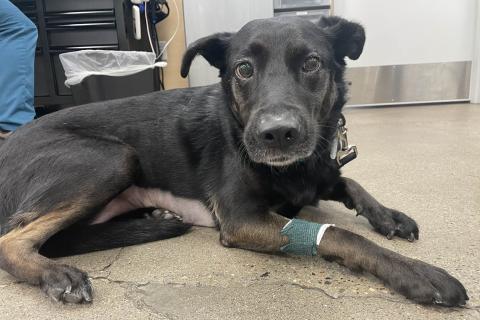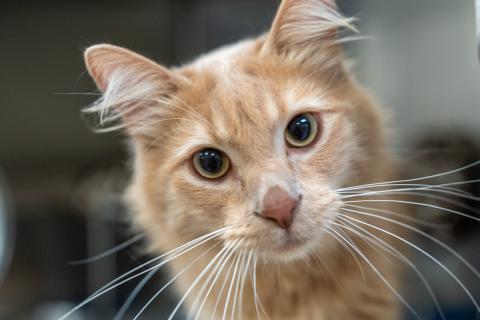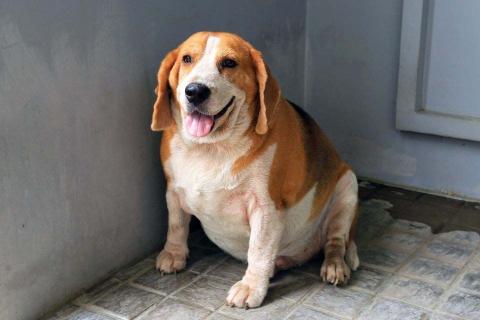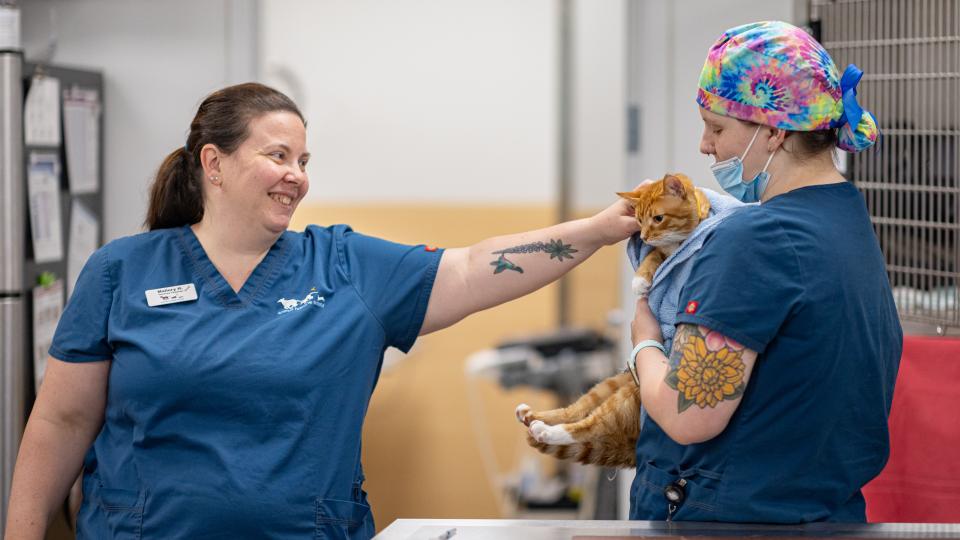
Veterinary technicians are often described as the nurses of veterinary medicine. The work they do each day is vital to the care animals receive at Animal Humane Society and in our community.
National Vet Tech Week is October 15-21. To show our appreciation for the work they do, our Public Relations Strategist Brittany Baumann sat down with AHS vet tech Jennifer Charewicz to find out more about the important work she does at AHS Vet Centers.
An interview with Jennifer Charewicz, AHS vet tech
Brittany Baumann: How long have you been at Animal Humane Society and how long have you been a vet tech?
Jennifer Charewicz: I've been with AHS for about 11 years now. I started as a boarding specialist at Now Boarding back in the day when it was open under AHS and then I moved to the vet centers in 2021. But I started out my animal career as a vet assistant at a private clinic 15 years ago.
Brittany Baumann: Why did you become a vet tech and why do you like working with animals so much?
Jennifer Charewicz: I really like taking care of things, but there's a special aspect to it that animals aren't able to vocalize and tell you what's wrong with them. It's kind of like a puzzle between you and the vet tech or you and the veterinarian and the owner trying to figure out what's wrong.
There's a certain type of challenge that comes along with working with animals that you don't necessarily get with people who are able to communicate with you. I love animals. I love cats and dogs. I wouldn't say I'm a cat person or a dog person. I will take them all, and I’ve always been that way.
Brittany Baumann: So why AHS?
Jennifer Charewicz: So, being here at AHS, there is a lot more focus on work life balance. There's a lot of great benefits to working at AHS and not just the PTO or the medical benefits — we have Purina for Professionals. I have a cat on prescription food, and that saves my husband and me a lot of money. There’s a lot of good perks to working here, so I think I'm probably here to stay. I really enjoy it.
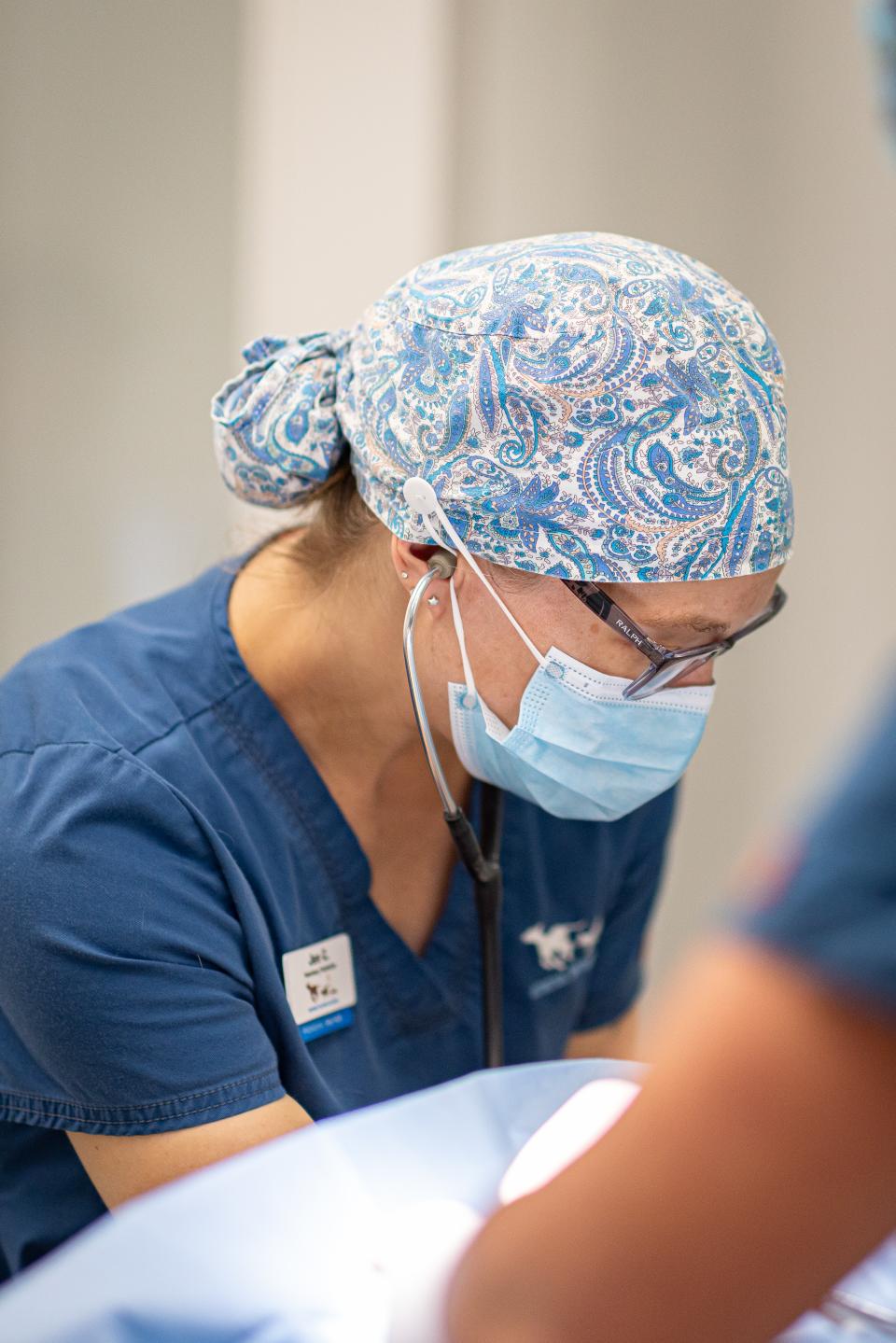
Brittany Baumann: So, Jennifer, what's the best part of your job?
Jennifer Charewicz: The best part of being a tech, I think, is having these clients come in who have a sick animal; they don't know what's going on, and they're worried about their pets. I love to help them figure out what's going on and to feel a little less anxious about their pet’s health.
It’s great to see an animal walk out of here who's got a good treatment plan that you know is going to work for them and the animal’s feeling better.
A lot of people, myself included, will say that this job is for the animals. I'm not a people person, but you really have to be a people person in this job.
You can't not deal with clients. They're kind of the most important part of this because they're the ones bringing in their animals. They're the ones telling us what's going on, and they're the ones who are going to continue treatment when they leave.
Brittany Baumann: What's the worst part?
Jennifer Charewicz: When you can't help them. Situations like when an animal has something bigger than what the owner can afford, or they have an emergency we just aren't able to see.
We really hate having to turn people away because we don't have the capacity to handle the big emergencies. Maybe it's just something that’s not curable and it's then you've got to help the client make that decision to say goodbye.
That's a really hard conversation to have with some people. They're not ready and you have to be able to be compassionate and patient. Those conversations are not fun, but it's part of the job. It's part of what we have to do as technicians, as veterinarians, as client service representatives.
Brittany Baumann: Do you have any advice for a future vet tech or someone starting their career as a vet tech?
Jennifer Charewicz: My first word of advice is always it takes a lot of patience. That's always number one. Patience with people, patience with animals. It takes a lot of physical and mental work to do it.
You know there are going to be days where it's great, like when you have all these kittens and they're adorable. But you're going to have days where it's just nothing but sick, elderly animal after sick, elderly animal.
You're going to get pooped on; you're going to get peed on. I've had cats and dogs poop in my scrub pockets more times than I will ever be able to count. It's dirty work. It's rewarding, but it isn't for everyone.
Brittany Baumann: Is there anything else that you want to add or that you want people to know about your job or just being a vet tech or Animal Humane Society?
Jennifer Charewicz: Oh, that's a good question. As far as my career goes, I will say Animal Humane Society has probably been one of my favorite places to work.
It's so much more than just a clinic or just an organization that adopts out cats and dogs. We’re really interested in working with the community and helping people, and that's what we do.There's nothing that feels better than having a client come in for spay or neuter and we take their payment for the day and they're like, wow, that's so much less than what I was quoted at my regular vet.
Having that opportunity to be able to help people, that's one of my favorite things about AHS.
Interested in becoming a vet tech at AHS?
If you’re interested in joining Jennifer and her colleagues as a veterinary technician, check out our careers page.
